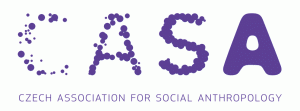7th CASA Biennial Conference, 2023 – SOLIDARITY

7th Biennial Conference of the Czech
Association for Social Anthropology (CASA)
SOLIDARITY
Call for Papers
Formative crises of the last decades, such as the global financial crisis of 2008, the Europe’s ‘migrant crisis’ of 2015 (and the Belarus-EU border migration crisis of 2021-22), the COVID-19 pandemic, the war in Ukraine, or the accelerating climate catastrophe, have one thing in common: despite the different causes, and the different social, economic and political impacts of these crises, they re-animated the public debate on solidarity.
The multiplicity of crises we experience creates various inequalities, relationships and disconnections. Whether we understand solidarity as a normative affirmation of one’s commitments to others, reciprocity, or as a gift that creates and reproduces social bonds, solidarity has multiple forms. From expressions of intergenerational solidarity, development aid, social policies, and activities aimed at protecting the environment to extending rights and recognition to actors whose agency has long been overlooked. Embedded in recognition of interconnectedness, solidarity can disrupt or, conversely, make visible social boundaries, while, inversely, solidarity practices might re-establish boundaries and differentiations. Indeed, this is the point of contention when different solidarity logics come into conflict.
Solidarity does not only have to be an object of detached reflection. Solidarity can be the starting point of political concern for others, or of applied and engaged research. Solidarity is also an essential part of the field research experience. We find it in local and expert imaginations and practices as an expression of concern and care for others, for those we care about and those with whom we are connected. Solidarity thus refers to processes of articulation of moral commitment and its connection to those who are the object of our recognition.
At the conference, we would like to invite you to explore the different solidarity practices and logics:
- How is solidarity constructed/enacted/performed, and why?
- What forms of solidarities across socio-material contexts does ethnography capture?
- How does the notion of solidarity reflect ideas of social, political and economic order?
- How has the concept of solidarity influenced theoretical thinking in the social sciences?
- What manifestations does solidarity take?
- How do different forms of solidarity transform thinking about core anthropological concepts?
- What are the interfaces of the concept of solidarity in contemporary anthropological practice? How do these solidarity positions intervene in research practice, and how do they transform the role of the researcher?
We invite proposals for thematic panels as well as individual papers that would relate to the central theme of the conference.
KEYNOTE SPEAKER
João Pina-Cabral is Research Professor at the Institute of Social Sciences of the University of Lisbon and Emeritus Professor of Social Anthropology at the University of Kent (UK). He was co-founder and then President of the European Association of Social Anthropologists and of the Portuguese Association of Anthropology. Over the years, his work has dealt with personhood and the family; ethnicity in postcolonial contexts; the relationship between symbolic thought and social power; and ethnographic theory. He carried out prolonged fieldwork in Portugal, southern China (Macau) and northeast Brazil (Bahia). Recent publications include World: an anthropological examination (Chicago, HAU Books 2017, www.haubooks.org/world), Transcolonial (Lisbon, ICS 2023) and a series of articles (e.g. Anthropological Theory 26 (3) 2028, 22 (3) 2022; Anthropology Today 34 (2) 2018; HAU 8 (3) 2018, 10 (1) 2020, 11 (1) 2021, 12 (1) 2022; JRAI 25 (2) 2019, 28 (4) 2022; Social Anthropology (30 (1) 2022; Social Analysis 66 (2) 2023; Critique of Anthropology 43 (1) 2023).
SUBMITTING THEMATIC PANELS (CLOSED)
If you are interested in organising a thematic panel, please send us your proposals by 30 March, 2023 7 April, 2023. The application should include the panel title, an annotation of the panel topic (150-250 words), and the name, email contact and affiliation of the panel convener/s. Approved panels will be announced on 15 April 2023 on the conference website. Submissions can be made in English or Czech (or Slovak).
SUBMITTING PAPERS
You can submit papers for panels or independently of them. These will then be assigned to existing panels or clustered, reflecting the highest fit. The deadline for submission is 15 June 2023. The application should include the paper title, an annotation (150-250 words), as well as the name, affiliation and contact details of the presenter. Please specify in the subject line if the submission is for a specific panel (Subject line: Panel title) or independent (Subject line: Independent paper). Submissions can be made in English or Czech (or Slovak).
CALL FOR PAPERS (pdf)
CONFERENCE FEE
Members of the CASA and other national anthropological organizations which are members of the WCAA:
- 500 CZK / 20 Euro
Non-members:
- 1 100 CZK / 45 Euro
Undergraduate and graduate students:
- free of charge
The conference fee will be payable by bank transfer.
6–8 October, 2023
Faculty of Social Sciences, Charles University
IMPORTANT DATES
30 March 7 April
deadline for panel proposals
15 April – 15 June
call for papers open
30 June
Notification of applicants
SUBMISSION
casa2023.iss@fsv.cuni.cz
ORGANIZING COMMITTEE
Jakub Grygar
Markéta Zandlová
Barbora Stehlíková
Andrea Hrůzová Průchová
Ema Hrešanová
Alessandro Testa
Martin Fotta
Michal Lehečka
http://www.casaonline.cz